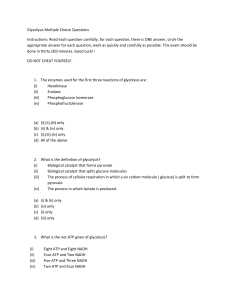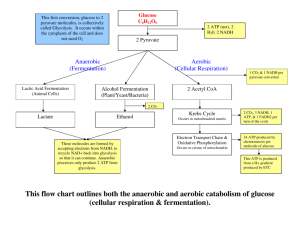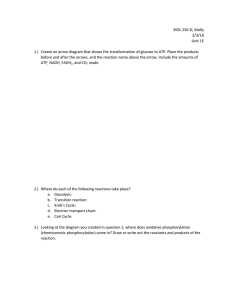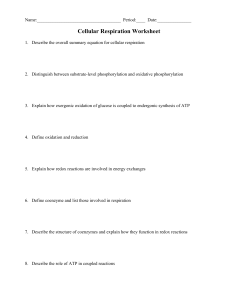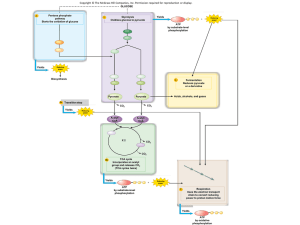Energy Transfer and Glycolysis Cellular Respiration
advertisement
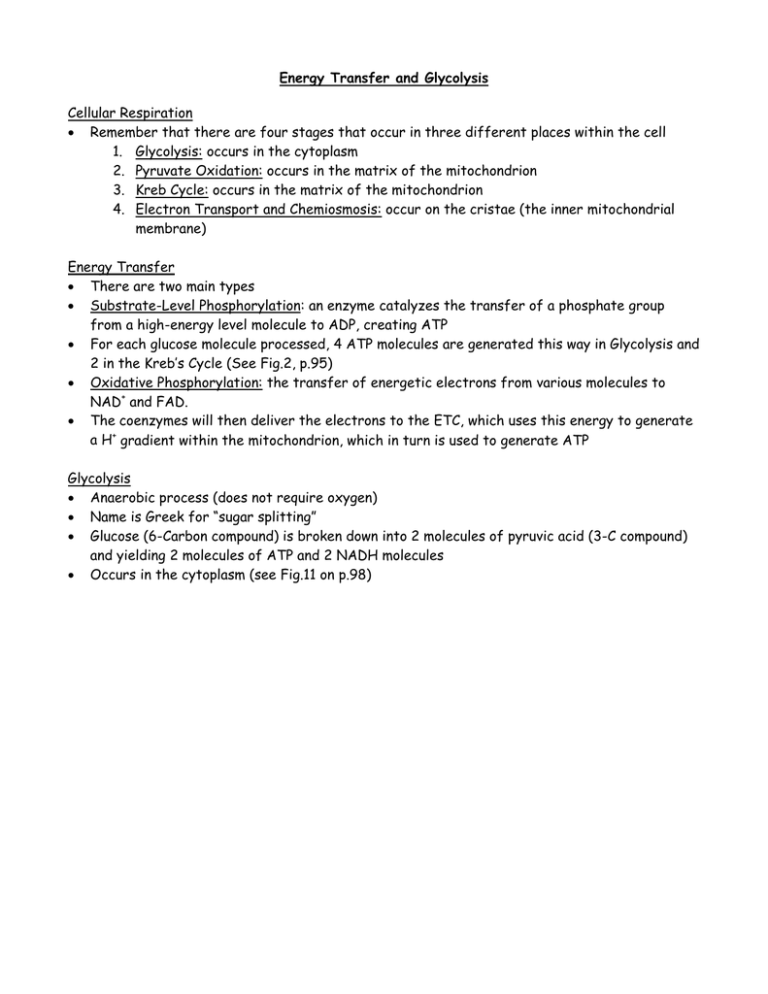
Energy Transfer and Glycolysis Cellular Respiration Remember that there are four stages that occur in three different places within the cell 1. Glycolysis: occurs in the cytoplasm 2. Pyruvate Oxidation: occurs in the matrix of the mitochondrion 3. Kreb Cycle: occurs in the matrix of the mitochondrion 4. Electron Transport and Chemiosmosis: occur on the cristae (the inner mitochondrial membrane) Energy Transfer There are two main types Substrate-Level Phosphorylation: an enzyme catalyzes the transfer of a phosphate group from a high-energy level molecule to ADP, creating ATP For each glucose molecule processed, 4 ATP molecules are generated this way in Glycolysis and 2 in the Kreb’s Cycle (See Fig.2, p.95) Oxidative Phosphorylation: the transfer of energetic electrons from various molecules to NAD+ and FAD. The coenzymes will then deliver the electrons to the ETC, which uses this energy to generate a H+ gradient within the mitochondrion, which in turn is used to generate ATP Glycolysis Anaerobic process (does not require oxygen) Name is Greek for “sugar splitting” Glucose (6-Carbon compound) is broken down into 2 molecules of pyruvic acid (3-C compound) and yielding 2 molecules of ATP and 2 NADH molecules Occurs in the cytoplasm (see Fig.11 on p.98) Steps of Glycolysis Glucose (6-C) **REQUIRES ENERGY** ATP ADP Dephosphorylation Glucose 6-phosphate Structural Change Fructose 6-phosphate ATP ADP Dephosphorylation Fructose 1,6-biphosphate Molecule splits into **RELEASES ENERGY** (x2) Phosphoglyceraldehyde (P-PGAL) (3-C) 2NAD+ PI 2NADH (x2) 1,3-biphosphoglycerate (P-PGAL-P) ADP Phosphorylation ATP (x2) 3-phosphoglycerate Structural Change (x2) 2-phosphoglycerate Dehydration H2O (x2) phosphenolpyruvate (PEP) ADP ATP (x2) pyruvate (3-C) Phosphorylation Pyruvate Oxidation The pyruvate molecules enter the matrix of the mitochondrion via a transport protein (x2) pyruvate CO2 NAD+ NADH + H+ Decarboxylation (x2) Acetyl Co-A (2-C) Overall formula (occurs twice for each molecule of glucose): pyruvate + NAD+ + CoA Acetyl-CoA + NADH + H+ + CO2 Acetyl CoA proceeds to the Kreb Cycle, NADH proceeds to the Electron Transport Chain, CO2 diffuses out and the H+ stay in the matrix
